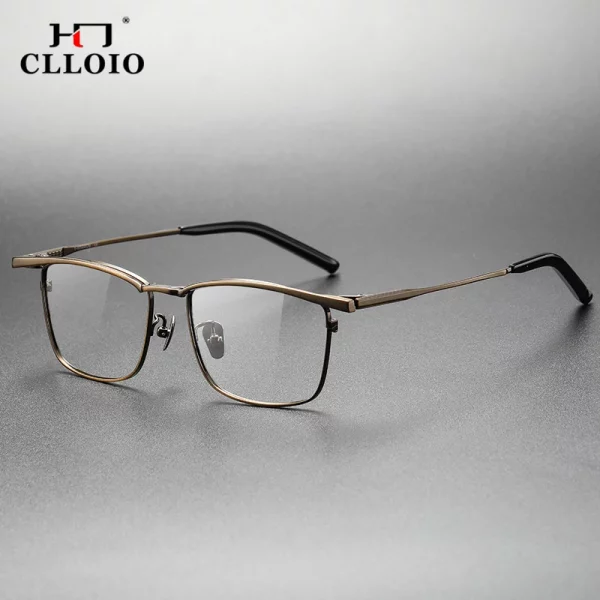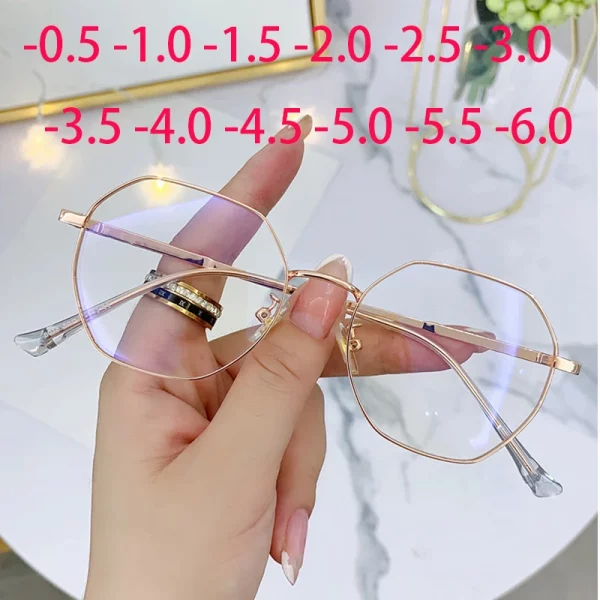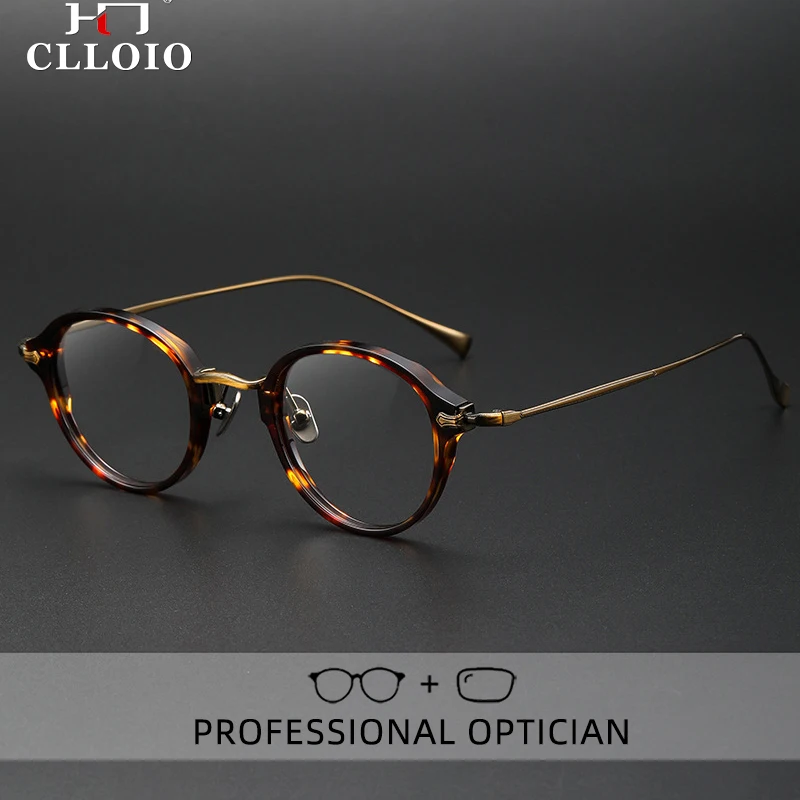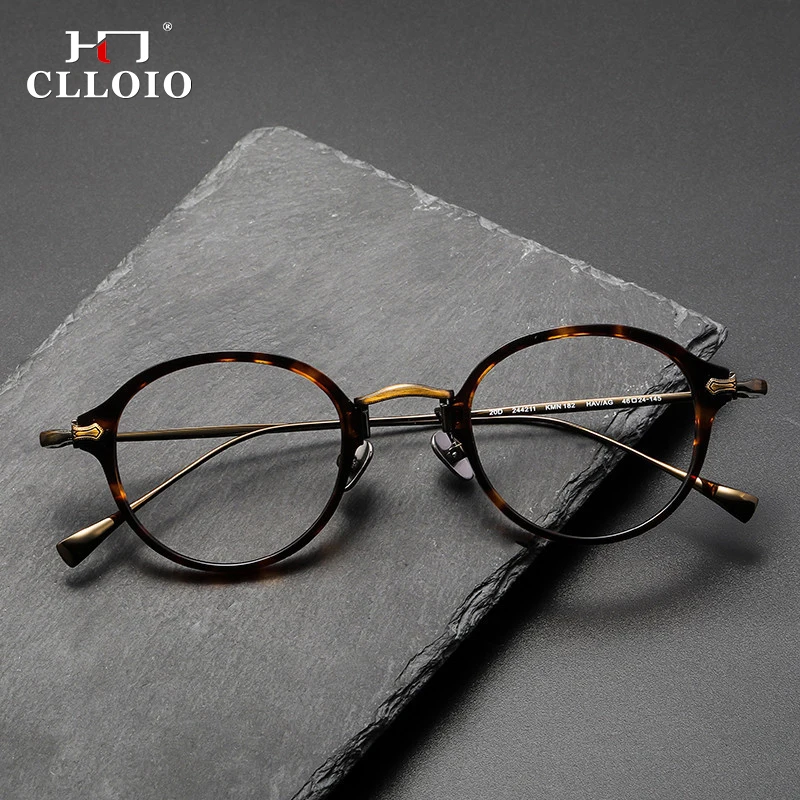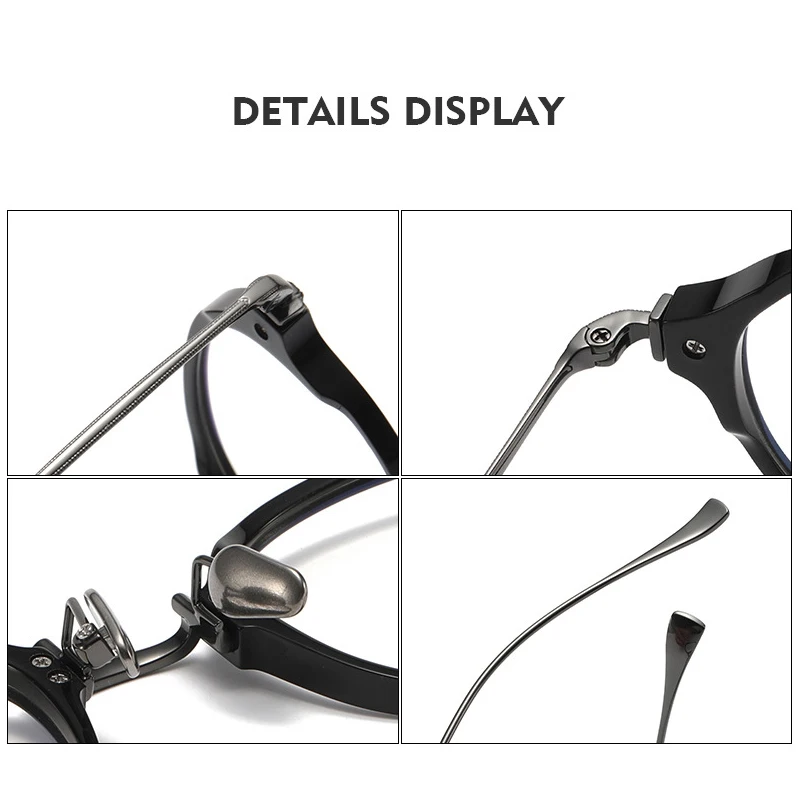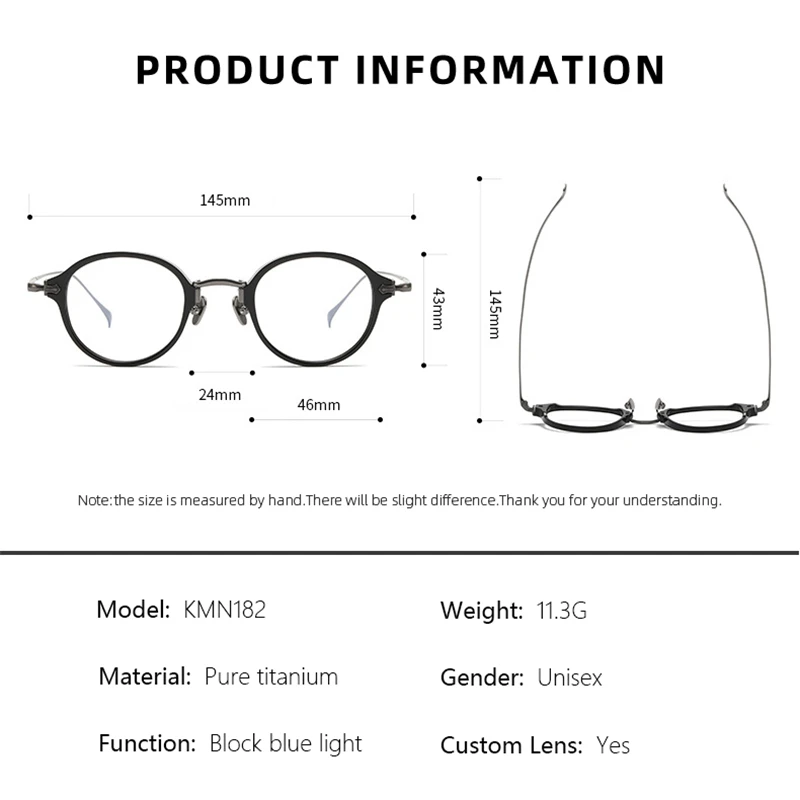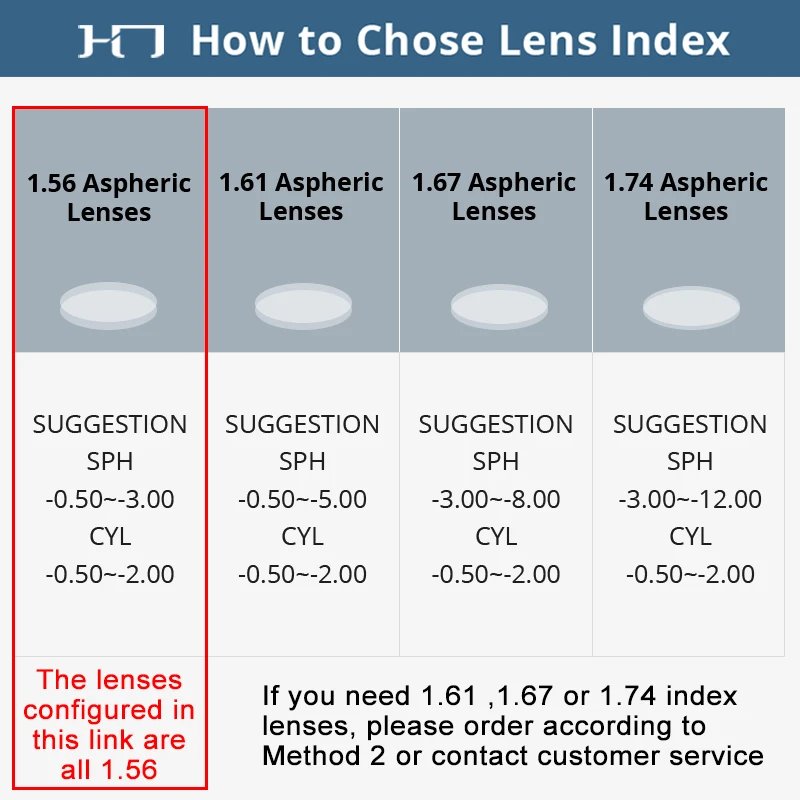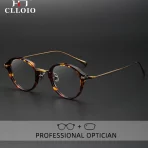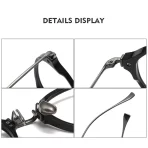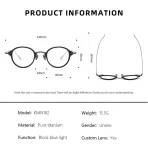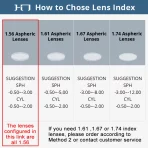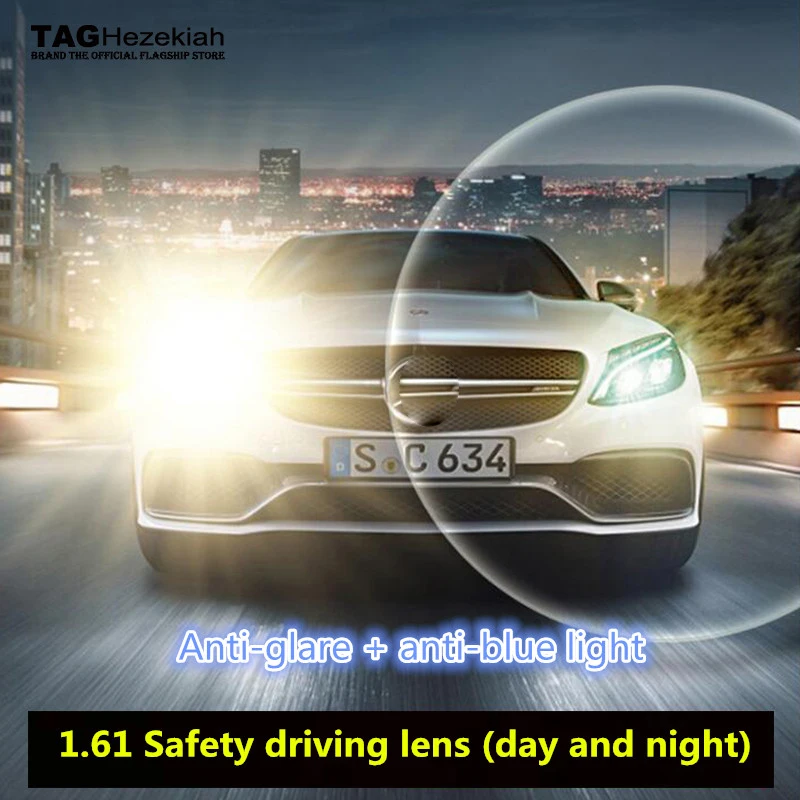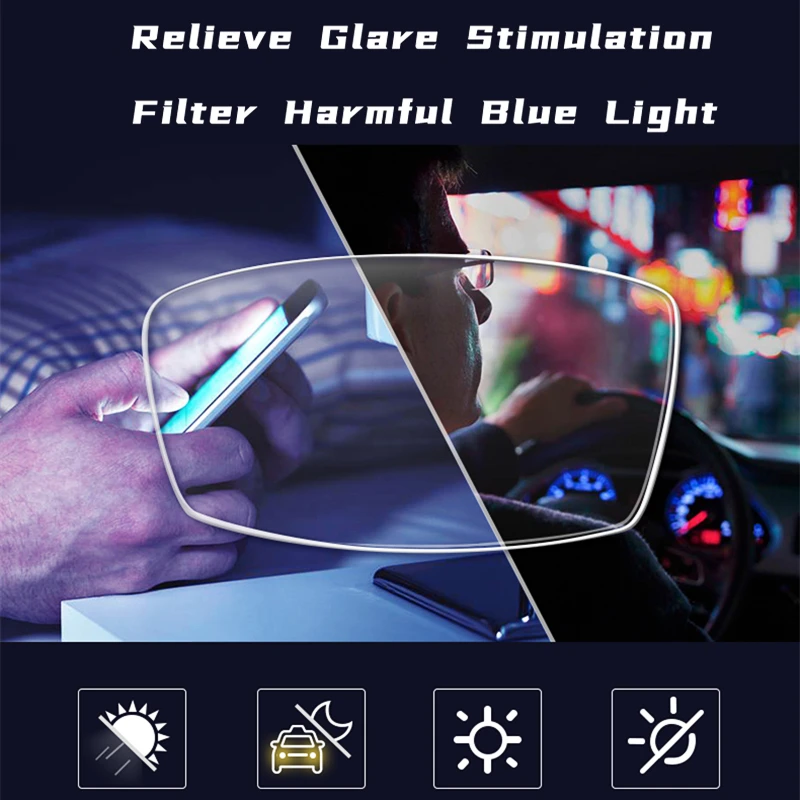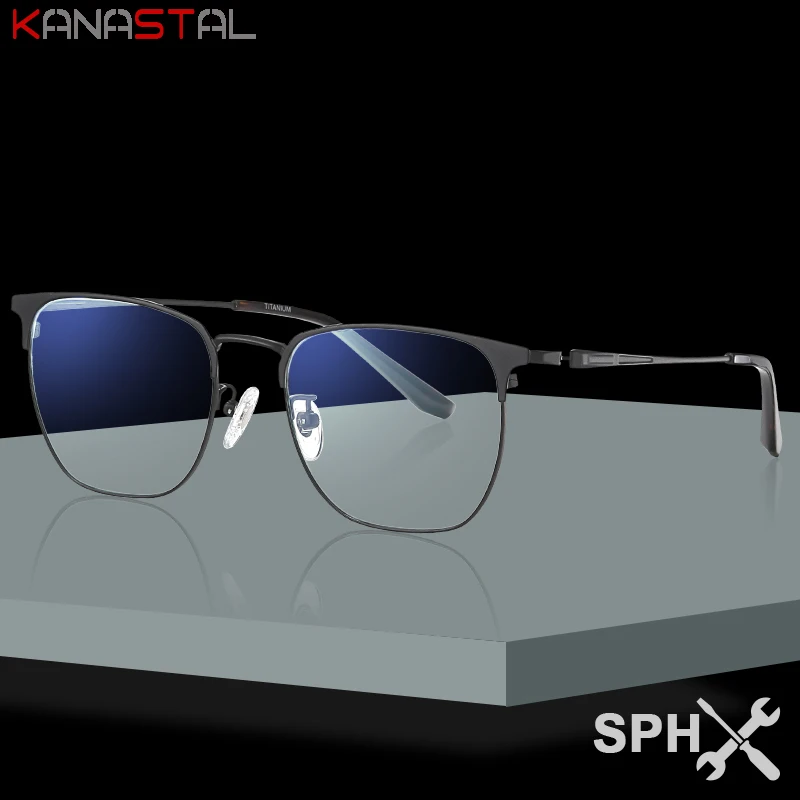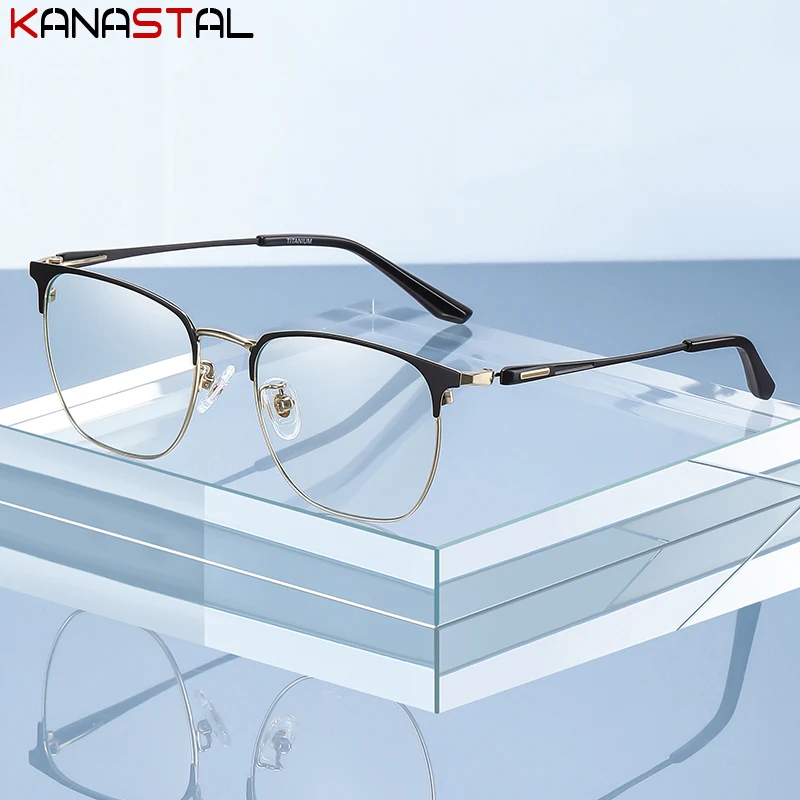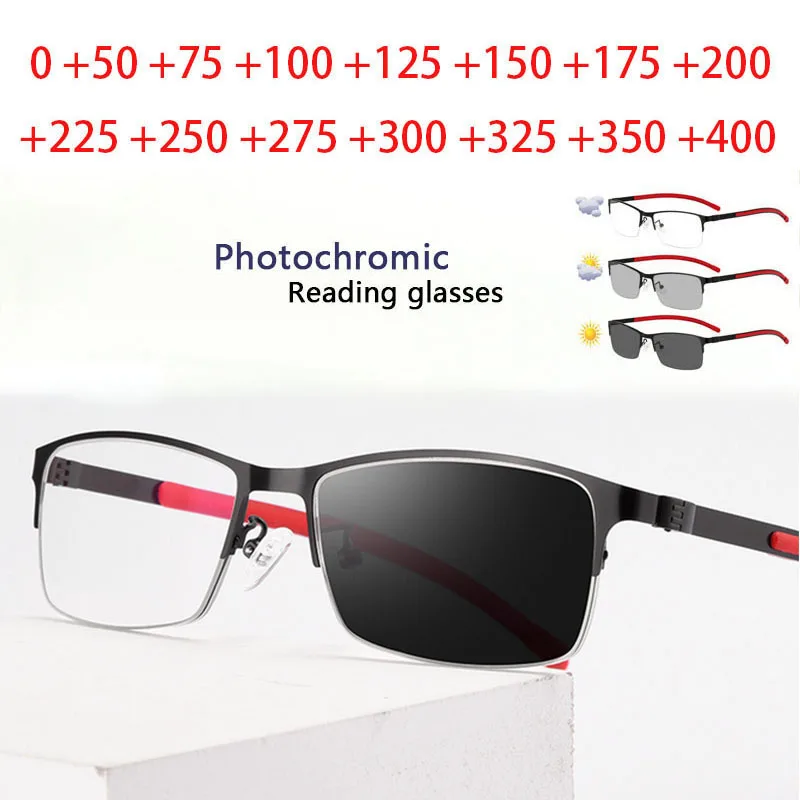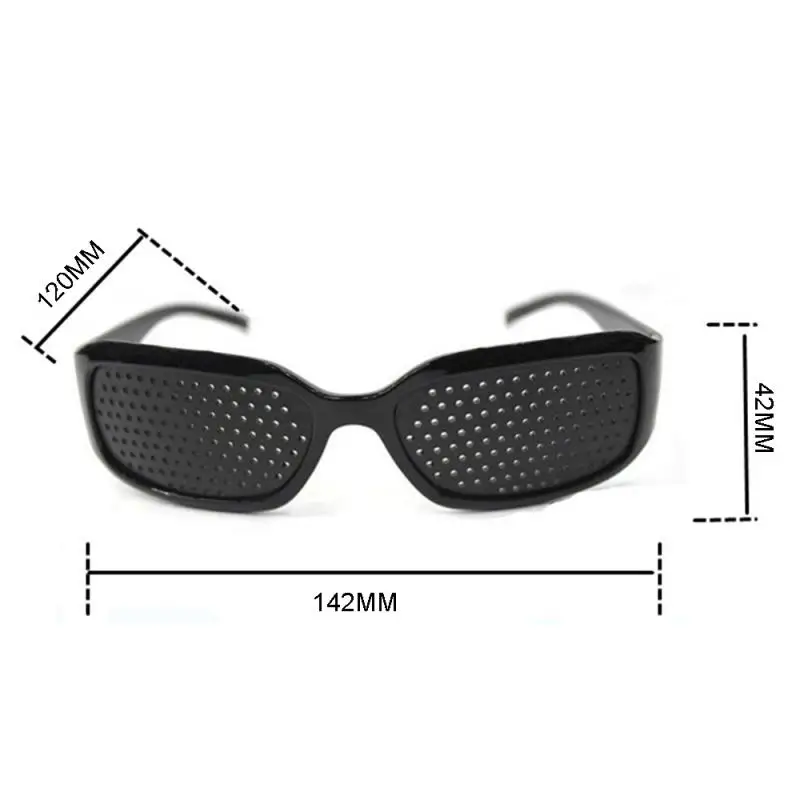Description
How To Order Prescription Glasses
(The refractive index of all glasses sold by the current link is 1.56)
If you need other refractive index lenses, please order according to Method 2 or contact customer service
Method 1 (For Myopia/Hyperopia)
Step 1: Select “Prescription custom” and Frame Options in the current link and place an order
Step 2: Provide your Prescription.
Method 2 (For Other Types of Lens)
Step 1: Choose 0 degree frame add to cart.
Step 2: Choose Lens add to cart. Contact us if you don’t know how to choose the lens.
Step 3: Provide your Prescription.
Step 4: Place an order,make payment and waiting for delivery.
Please upload your scanned prescription paper in the order detailed page, or please write your prescription there as follows:
Note: Remember to write the symbol “+” or “-“
|
CLLOIO OPTICS |
|||||
|
Prescription |
SPH |
CYL |
ASIX |
Near ADD |
PD |
|
Right (OD) |
-1.25 |
-0.50 |
60 |
32 |
|
|
Left (OS) |
-1.75 |
-1.25 |
120 |
33 |
|
|
Leave us message |
Right(OD) SHP: -1.25 CYL: -0.50 AXIS : 60 Left(OS) SHP: -1.75 CYL: -1.25 AXIS : 120
PD:32/33
|
||||
|
The numbers filled in the table are just taken as an example. |
|||||
How to Measure Your PD
If you want to order eyeglasses online, you can either ask your optometrist for your PD or measure it yourself.
If obtaining your measurement from your optometrist isn’t possible, no worries-you can measure it from home using ruler!


















What Lens Index is Best For You
(The refractive index of all glasses sold by the current link is 1.56)
If you need other refractive index lenses, please contact customer service
The lens thickness you should get depends on your prescription and your lifestyle.
|
CLLOIO OPTICS |
|||
|
Lens index |
Suggestion Power |
SPH |
CYL |
|
1.56 INDEX LENS |
|
-0.00 to -3.00 or +0.00 to +3.00 |
+/- 2.00 or below |
|
1.61 INDEX LENS |
|
-3.25 to -5.00 or +3.25 to +5.00 |
+/- 2.00 or below |
|
1.67 INDEX LENS |
|
-5.25 to -8.00 or +5.25 to +8.00 |
+/- 2.00 or below |
|
1.74 INDEX LENS |
|
+/-8.25 and above |
+/- 2.00 or below |
|
If your CYL> 2, please pay an additional $10 customization fee. |
Add to cart |
||
|
If your CYL> 4, please pay an additional $20 customization fee. |
Add to cart |
||

-
Sphere (SPH)
This indicates the strength of the lens power, measured in Diopters (D). Most typically this is written in ¼ diopter increments (I.E. 0.25, 0.50, 0.75, 1.00). This value is the prescribed amount of correction for Nearsightedness (Myopia) or Farsightedness (Hyperopia). If the number appearing under this heading has a minus sign (–), you are nearsighted; if the number has a plus sign (+) or no sign, you are farsighted. If there is no spherical correction, it could be written as 0.00 or Plano (PL).
-
Cylinder (CYL)
This indicates the strength of the lens power to correct Astigmatism. If nothing appears in this column, the value is 0 or “SPH” is written, it indicates that there is no astigmatism.
Optometrists usually write the astigmatic correction with a minus sign (-). Ophthalmologist usually write the value with a plus sign (+). These represent two different ways of determining the correction.
Astigmatism basically means the light coming into the eye comes to two focal points. To correct this, the lens uses the SPH power to move one of the focal points to the retina and the CYL power to move the other focal point to the retina.
-
Axis
The Axis number will be a value between 1 and 180. The diagram below demonstrates where those meridians are located. As you can see above, the number 90 corresponds to the vertical meridian of the eye, and the number 180 corresponds to the horizontal meridian. To avoid mistakes, the axis is typically written as 3 digits. For example, an axis value of 45 is usually written as 045.
-
Near Add or NV-ADD
This is the added magnifying power applied to the bottom part of Bifocal, Trifocal or Progressive lenses to correct presbyopia. The number appearing in this section of the prescription is always a plus power, even if it is not preceded by a plus sign (+). The add power is usually the same for both eyes, however in certain rare occasions it could be different between the 2 eyes.
A brief description of presbyopia is the acquired inability to focus on close objects. Presbyopia is a natural aging change within the eyes. There is no way to prevent it and it happens progressively over time. Presbyopia typically starts to affect people around age 40.
CLLOIO Aspheric Lenses
CLLOIO Aspheric lenses can reduce aberrations and distortions, and visualize objects more realistically.
CLLOIO Aspheric lenses are lighter and can effectively relieve visual fatigue caused by compression.






